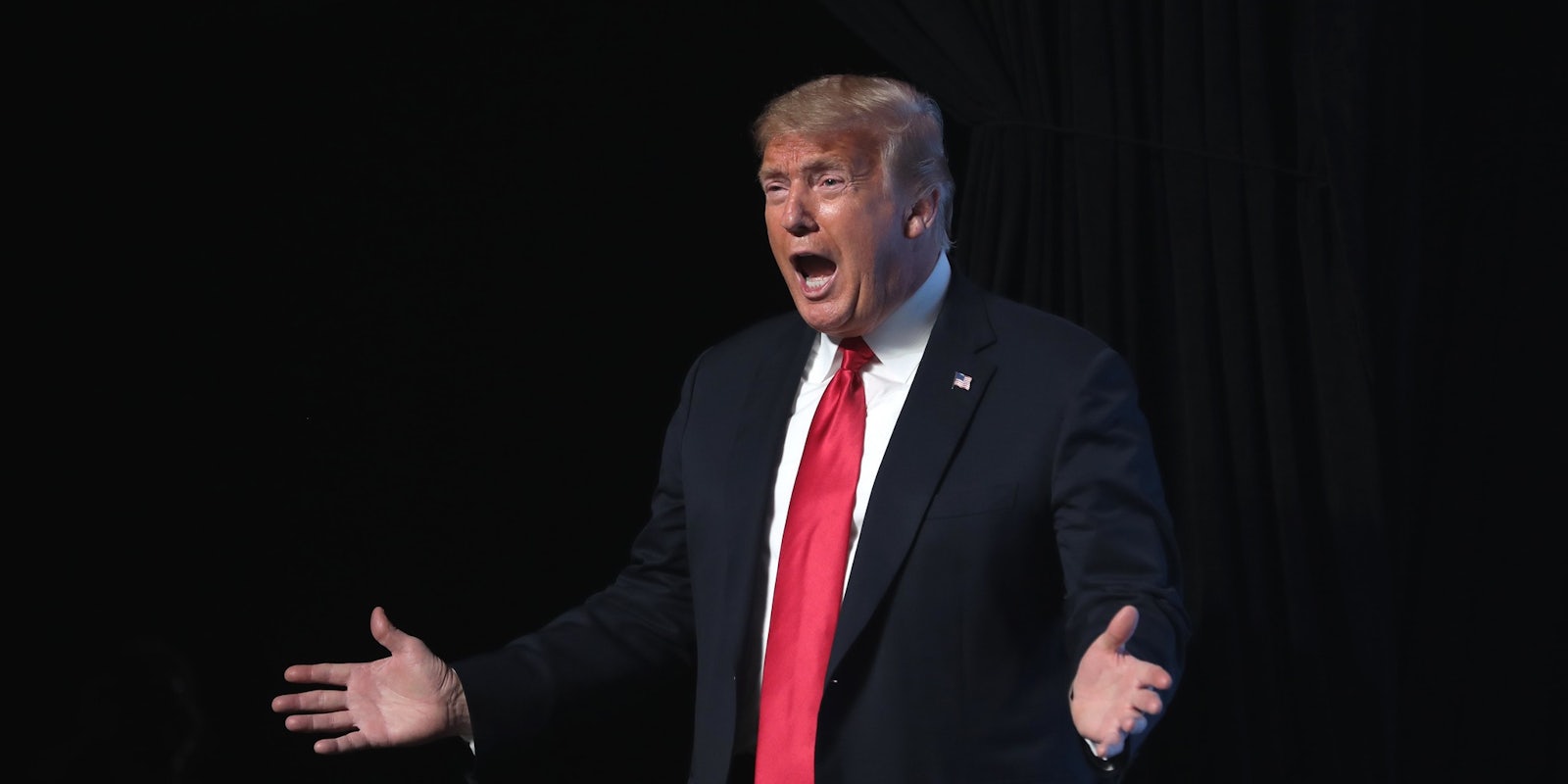Yesterday, in the waning moments of President Donald Trump’s term, the White House released the little-anticipated “1776 Report,” its rebuttal to the New York Times 1619 Project. The report, ostensibly geared to “restoring patriotic education,” was swiftly criticized as “a pile of hot garbage,” “hack job,” and “racist,” a particularly stinging rebuke as it was released on Martin Luther King, Jr. Day.
Portions of it were also reportedly plagiarized.
Historian Courtney E. Thompson, a Mississippi State professor, tweeted that according to Turnitin.com, a website professors use to check for plagiarism, the 45-page report is 26% plagiarized.
Thompson noted that some of the materials appear to have been lifted off Wikipedia; others are the report’s co-authors quoting themselves without citation, which is technically still plagiarism.
People weren’t exactly surprised. Trump, his associates, and family members have a well-established history of passing others’ words off as their own, after all.
“The 1776 Report is a bunch of plagiarized racist nonsense from the early 20th century, accentuated by some Southern Strategy and culture war paranoia,” tweeted historian Lindsay Stallones Marshall.
In addition to claims it’s plagiarized, the 1776 report faces serious accusations of racism and being more of a political, than historical, document.
The report likens progressivism to fascism, decries identity politics, and paints an idealized portrait of American history that whitewashes slavery. Some of this is done while invoking the name of Martin Luther King, Jr., including his famed “I have a dream” speech, one portion of which it quotes three separate times.

While it espouses the lofty goals of recognizing the nation’s faults and merits alike, many believe the 1776 report is more likely to divide than unite. It urges centering school curriculum on American exceptionalism and essentially relegating its flaws—such as slavery, genocide of indigenous people, and other injustices to footnotes—apparently in the hope of instilling “patriotic love.”
“The 1776 Commission’s report reads like it’s straight from a white supremacist’s manifesto,” tweeted the Independent columnist Ahmed Baba.
The report is largely viewed as an attempt to push back on the New York Times’ 1619 Project, which reframes national history with slavery and Black Americans more central to the narrative. Yet, as the Washington Post reports, even those who’ve criticized the 1619 Project see little value in the 1776 Report.
“It reduces history to hero worship,” Princeton University historian Sean Wilentz told the Post of the latter.
“It’s the flip side of those polemics, presented as history, that charge the nation was founded as a slavocracy, and that slavery and white supremacy are the essential themes of American history. It’s basically a political document, not history.”


